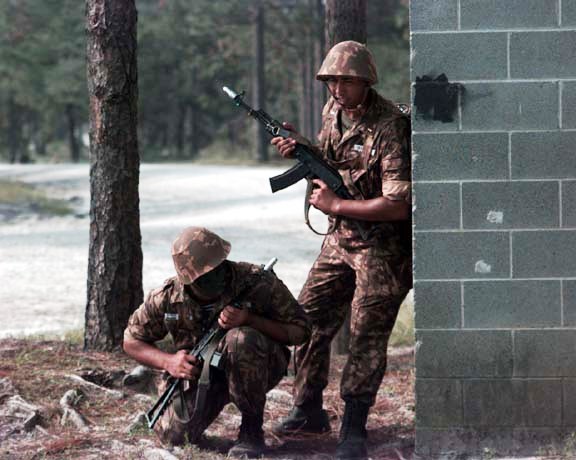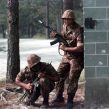
Factors that Influenced Uzbekistan’s Decision to Pull out of the CSTO: The View from Tashkent
Publication: Eurasia Daily Monitor Volume: 9 Issue: 136
By:

On June 28, Uzbekistan announced its decision to suspend its membership in the Collective Security Treaty Organization (CSTO). The CSTO is a predecessor of the Collective Security Treaty that was signed on Uzbekistan’s own initiative in Tashkent on May 15, 1992, at the peak of the Afghan debacle and civil war in Tajikistan. It is not the first time Uzbekistan has taken a U-turn in its foreign and security policy. In 1999, Uzbekistan along with Azerbaijan and Georgia refused to prolong the Collective Security Treaty. Relative isolation from the West, resulting from the May 2005 Andijan events, compelled Uzbekistan to resume its membership in the CSTO in 2006. However, Uzbekistan abstained from participation in all joint military exercises. Without Uzbekistan, the alliance will bind Armenia, Belarus, Kazakhstan, Kyrgyzstan, Russia and Tajikistan (Itar-Tass, Dkb.gov.ru, June 28; Rosbalt.ru, June 29).
For many casual observers, Tashkent’s decision came unexpectedly, though it occurred in the aftermath of Uzbekistan’s intense consultations with Chinese, European and US military counterparts. Most embarrassingly, this demarche came amid Vladimir Putin’s recent friendly visit to Uzbekistan – the Russian President’s first trip abroad to a Central Asian country during his new term.
President Putin’s visit to Tashkent on June 4 lasted only a couple of hours. Surprisingly, the official state channel O’zbekiston TV’s prime time Axborot News program made no mention of the meeting on the day of Putin’s arrival. Now it is becoming clearer that the media’s silence reflected the attitude of the country’s elite. Indeed, it was not until 1 a.m. on June 5 that the Uzbek News Agency provided breaking news on the “the time-tested [Uzbekistani-Russian] partnership” (Uza.uz, June 5).
Tashkent’s disagreement with Moscow, which culminated in the former’s recent suspension of its participation in the CSTO, was first and foremost over the creation of the Rapid Reaction Force (RRF) within the alliance. Uzbekistan categorically rejected the CSTO’s ability to deploy RRF units without complete consensus by all members or to member states that expressly forbid hosting foreign militaries. Moreover, Uzbekistan insisted on banning the use of the RRF to resolve inter-state conflicts between member states themselves and argued that the RRF should not automatically enter into force until ratification by all CSTO members (Interfax.ru, June 4, 2009; Ria.ru, June 14, 2009). In September 2009, Tashkent unequivocally declared, “Uzbekistan will never and under no circumstances join the RRF; the republic’s position on this issue remains unchanged. This approach is repeatedly formally brought to the attention of representatives of the Russian authorities at different levels” (Ca-news.org, Trend.az, September 7, 2009).
Furthermore, the violence that rocked the Kyrgyz Republic in 2005 and 2010 revealed to Tashkent the impotence of the Russian-led CSTO. The alliance failed to get involved in safeguarding Bishkek during the revolutions to topple the Akayev and Bakiyev regimes, or in averting and minimizing the inter-ethnic violence in Osh and Jalalabad (Lenta.ru, May 16). Uzbekistan’s pull out from the CSTO was matched to some degree by Moscow’s push for Tashkent to either accept the reformed alliance structure or leave the organization, thus consolidating the rest of the members more fully (Insor-russia.ru, August, 2011, p. 23-24).
Further stress on Uzbekistani-Russian relations stemmed from Moscow’s plans in July 2009 to open a new military base in southern Kyrgyzstan. Tashkent was furious and categorically opposed to the creation of new foreign military bases in neighboring states that would lead to militarization of the region (Ria.ru, July 12, 2009; Lenta.ru, July 29, 2009; Jahonnews.uz, August 3, 2009).
Russia’s relationship with Uzbekistan also suffered from Moscow’s variable policy toward the construction of hydro power stations in the region. While promising Karimov in 2009 that Russia would keep Uzbekistan’s interests in mind, just weeks later, the Kremlin inked an accord to build the Kambarata Hydro Power Station in Kyrgyzstan. And, on July 31, 2009, in Dushanbe, Tajikistan, then President Dmitry Medvedev personally took part in the launching ceremony of the Sangtuda Hydro Power Station (Pravda, February 3; Ria.ru, February 3, 10; July 30-31, 2009).
Apart from the regional grievances, Uzbekistan expressed its utmost dissatisfaction with the CSTO’s overall strategic approach to bring peace to Afghanistan. The CSTO planned to request a UN mandate to legalize its operations to create a stabilization belt along the Afghan-Tajikistani and the Afghan-Uzbekistani borders without entering Afghanistan itself. This would mean permanent basing rights for Russia in Tajikistan and Uzbekistan – a development Tashkent vehemently opposed. What Uzbekistan feared most was that, under the pretext of conflict management, Russia would insist on deploying its RRF “peacekeeping forces” to the region without Tashkent’s consent and inadvertently inflate the issues of disputed enclaves in Kyrgyzstan and Tajikistan (Insor-russia.ru, August, 2011, p. 57).
Upon his reelection as President of the Russian Federation, the first decree Vladimir Putin signed was a document on foreign policy priorities, which included the need to strengthen the CSTO (Kremlin.ru, May 7). Tashkent, still working on safeguarding its state sovereignty, received this agenda with caution as a signal to reanimate the Soviet Union. During his annual Constitution Day address, Islam Karimov replied to Putin’s project: “We should not forget that the formation of inter-state unions, which go beyond economic interests and become politicized, are a fraud. They may in turn adversely affect already established links […] [and hinder] the development of integration processes with third countries” (Uza.uz, December 13, 2011).
Indeed, the freedom of developing ties with third countries outside of the Central Asian region is of vital importance to Uzbekistan. Illustratively, on the day of Putin’s arrival to Tashkent on June 4, NATO Secretary General Anders Fogh Rasmussen announced that the North Atlantic Alliance had reached an agreement on reverse transit from Afghanistan reached with three Central Asian partners: Kazakhstan, Kyrgyzstan and Uzbekistan. (Nato.int, June 4). Additionally, since the fall of 2011, a number of EU-member country defense ministers have visited Tashkent, including from France, Germany, Poland, Latvia and the United Kingdom. Additionally, on October 11, 2011, President Karimov received the US Special Representative for Afghanistan and Pakistan Marc Grossman and Germany’s Special Envoy for Afghanistan and Pakistan Michael Steiner (Gov.uz, October 12, 2011). Uzbekistan now handles about 75 percent of all non-lethal cargo that goes through the Northern Distribution Network – a transport corridor that links the ports of the Baltic and Black Seas to Afghanistan and serves as an important supply line for International Security Assistance Force (ISAF) operations in Afghanistan. In addition, a series of high-level visits between Chinese and Uzbekistani defense officials in recent years have illustrated Beijing and Tashkent’s efforts to “jointly lift inter-military cooperation to a new level” (Gov.cn, Chinadaily.com.cn, May 31; Xinhuanet, April 19, 2011).
New foreign and domestic policy changes that Tashkent undertook since it suspended its CSTO membership demonstrate that Uzbekistan is determined to take unilateral steps to enhance its security, as well as seek trusted partners for bilateral security cooperation. These efforts have been focused first of all on the strengthening of Uzbekistan’s territorial integrity, border security and internal stability. On June 26, in the Uzbekistani city of Ferghana, a Kyrgyzstani-Uzbekistani intergovernmental commission met to discuss the delimitation and demarcation of the two countries’ border. The overall length of the mutual border is 1,378 kilometers (856 miles), out of which 354 km (220 miles), or 50 crossing points, remain non-delimited so far. In addition, Uzbekistan recently tightened its rules for legal border crossings and entry into the country (12news.uz, July 2, 9).
Uzbekistan’s suspension of CSTO membership illustrates its long-term vision and was taken to maintain the country’s self-reliance and preserve its freedom of action in the region. But now, outside of the CSTO’s “sphere of responsibility,” Tashkent worries about possible provocations, sabotage or even revenge of some parties in and within the parameter of its territory. Russian Army General Vitaliy Chirkin’s recent warning of the potential for local armed conflict that may erupt soon in Central Asia will only further fuel such concerns in Tashkent (News.nur.kz, June 26).




